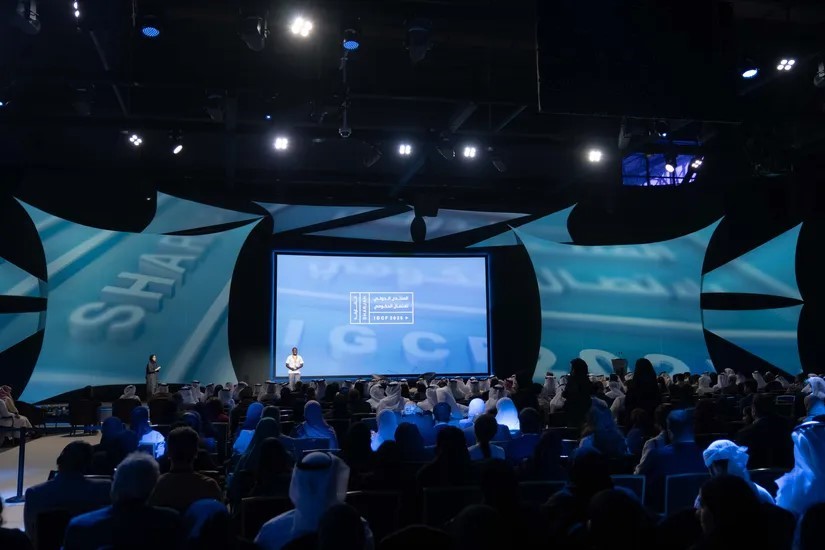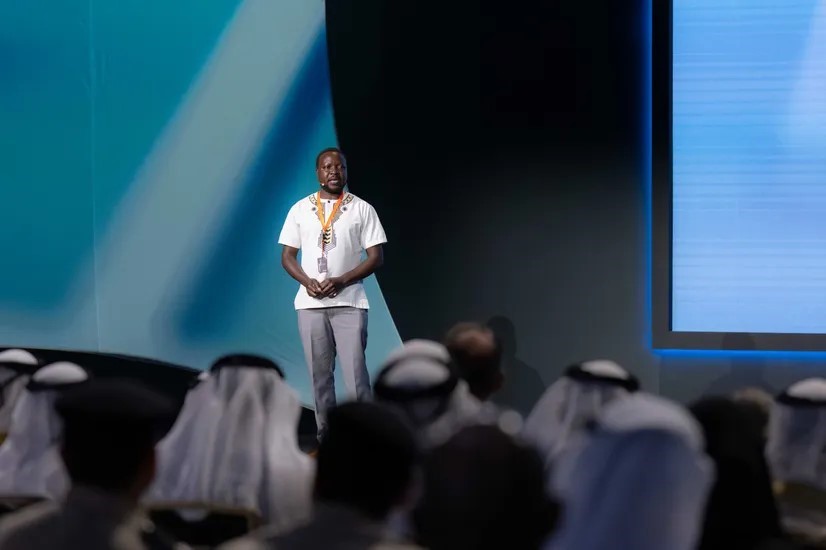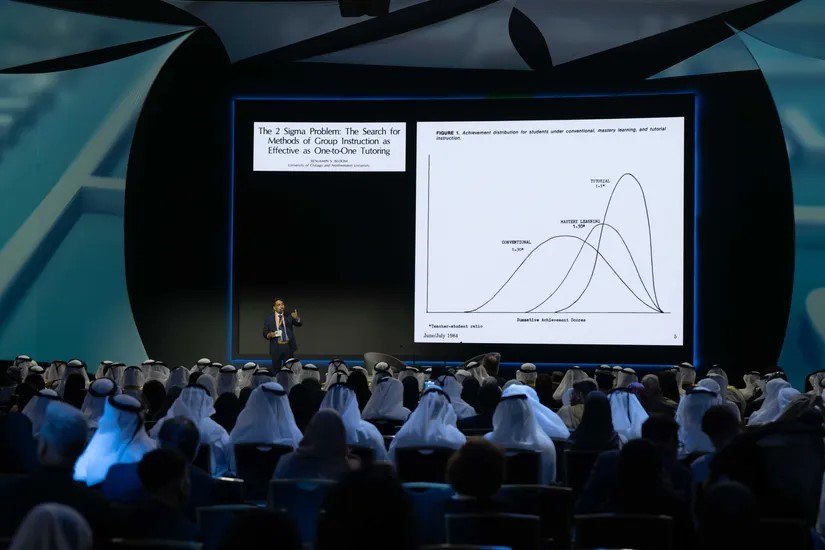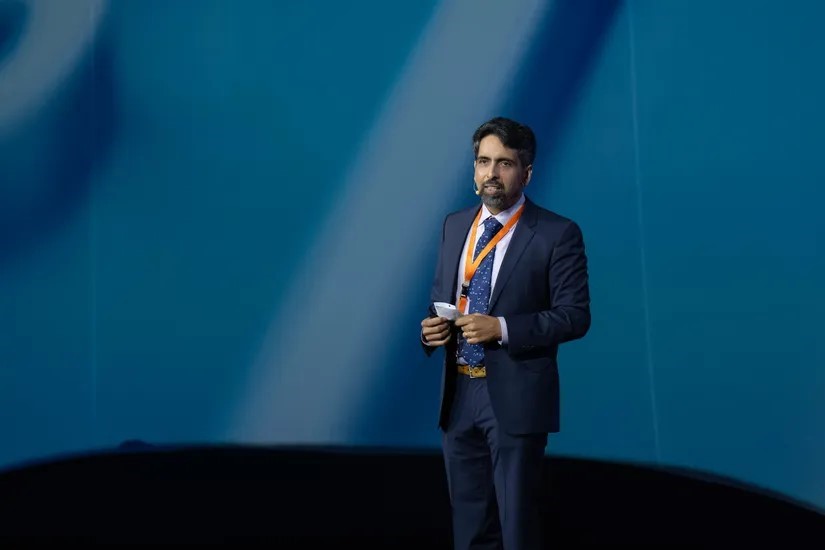His Highness Sheikh Dr. Sultan bin Mohammed Al Qasimi, Member of the Supreme Council and Ruler of Sharjah, attended, alongside His Highness Sheikh Sultan bin Ahmed bin Sultan Al Qasimi, Deputy Ruler of Sharjah and Chairman of Sharjah Media Council, and Her Highness Sheikha Jawaher bint Mohammed Al Qasimi, wife of His Highness the Ruler of Sharjah and Chairperson of Sharjah Family and Community Council, two inspiring keynote speeches during the opening of the 14th edition of the International Government Communication Forum (IGCF). The speeches were delivered by Sal Khan, founder and CEO of Khan Academy, and William Kamkwamba, Malawian innovator and engineer.
اضافة اعلان




The two addresses offered powerful perspectives on the role of education and innovation in driving change and achieving sustainable development. Sal Khan highlighted the role of knowledge and modern technologies in empowering people and building a “happiness economy,” while William Kamkwamba presented a real-life example of innovation and human willpower in turning poverty and famine into opportunities to create simple, locally inspired solutions for the world.
Educator Sal Khan opened his keynote by emphasizing the importance of education and knowledge-based societies. He called for building a future founded on the “happiness economy” and urged a global call to reimagine society, stressing that real progress should not be measured by economic output alone but by the degree of human satisfaction and fulfillment.
Khan underscored the importance of equal access to learning opportunities, saying: “I envisioned a world where anyone, anywhere, could access knowledge and education for free, and I made myself responsible for realizing that dream. Education is the most powerful tool for empowerment—it is not an end in itself but the beginning of change. It gives us the ability to advance, to understand, to make sound decisions, and to overcome any challenges.”
He added that democratizing knowledge also serves as an indispensable bridge between governments and their people, fostering informed citizens capable of confronting global challenges. He described this as the wisest investment any society can make.
Khan concluded his inspiring speech by stressing the centrality of education: “A happiness economy cannot thrive if people do not feel seen, heard, and empowered. When we transform education into a force for justice, we give every individual the ability to learn, grow, and prosper—and we build a world where quality of life is the ultimate measure of success.”
Malawian engineer and inventor William Kamkwamba shared his moving life journey in his keynote, describing a childhood shaped by the hardships of farming in a rural African village. He emphasized the importance of self-reliance and trust in one’s abilities to overcome challenges and bring about the desired change toward a better life.
Kamkwamba spoke about how education and a single book transformed his vision of life, turning it into the foundation of positive change. He recalled the severe drought his village endured, which pushed him on an uncertain journey in search of solutions. A book on energy that he stumbled upon in a city library changed the course of his life. Fueled by his love of books and learning, he attracted the attention of a library that supported him, eventually prompting officials to visit his village and witness his project. His invention—a hand-built windmill crafted from scrap wood and an old bicycle—drew wide media attention, carrying his inspiring story from a small village in Malawi to the global stage.
Reflecting on his journey, Kamkwamba shared the lessons he learned, stating: “I thought about what could have made the road easier for nurturing talent, invention, and community-based solutions—such as having mentors and supportive tools. That is why I decided to establish an organization to provide this kind of support.”







